Asif Islam’s ‘Nirvana’ trailer stuns with its silent storytelling

The much-anticipated trailer for "Nirvana", a haunting black-and-white film, has finally dropped. Directed by Asif Islam, the 85-minute feature stands out not just for its monochrome aesthetic but also for its decision to forgo dialogue entirely. Instead, the film relies solely on visual storytelling to unravel the quiet, profound lives of three factory workers.
"Nirvana"—an unconventional and deeply introspective work—earned international recognition at the 46th Moscow International Film Festival (MIFF), where it received the prestigious Special Jury Award.
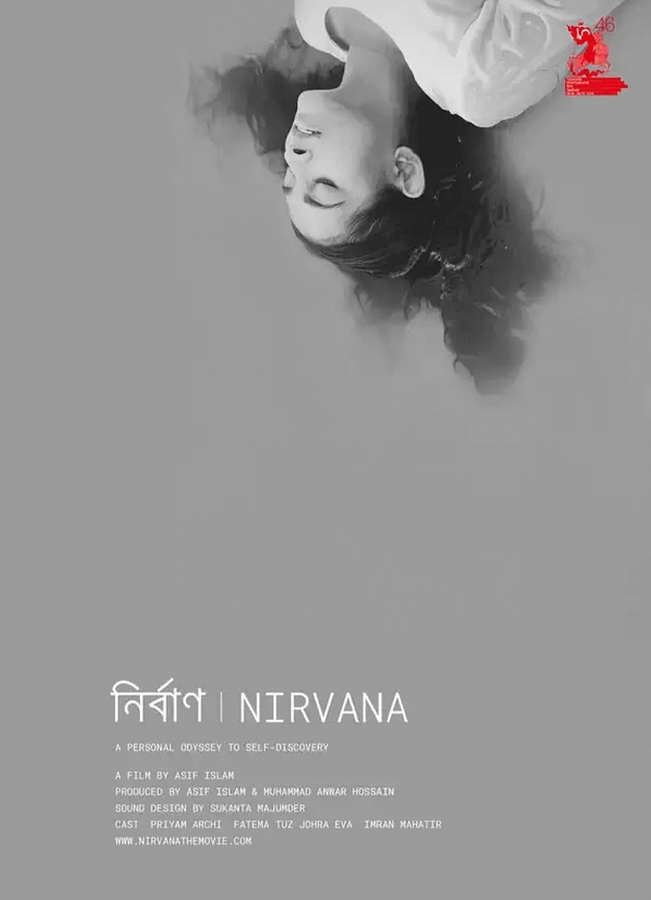
Produced by Asif Islam and Anwar Hossain, "Nirvana" takes viewers into the lives of three characters who navigate their daily existence with silent intensity. Fatema Tuz Zohra Eva plays a grieving mother, Priyam Archi portrays a woman betrayed by love, and Imran Mahathir portrays a man grappling with his sexual identity. The absence of dialogue emphasises the weight of their internal struggles, a creative risk that pays off in delivering a meditative and thought-provoking experience.
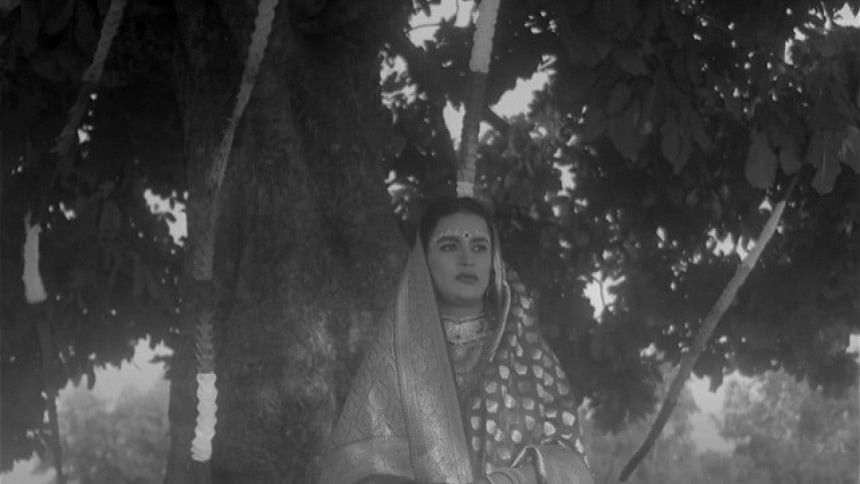
"The aim was to focus on the internal rather than the external," says Asif. This artistic choice is reflected in the film's stark imagery, which forgoes the vibrancy typically associated with mainstream Bangladeshi cinema.
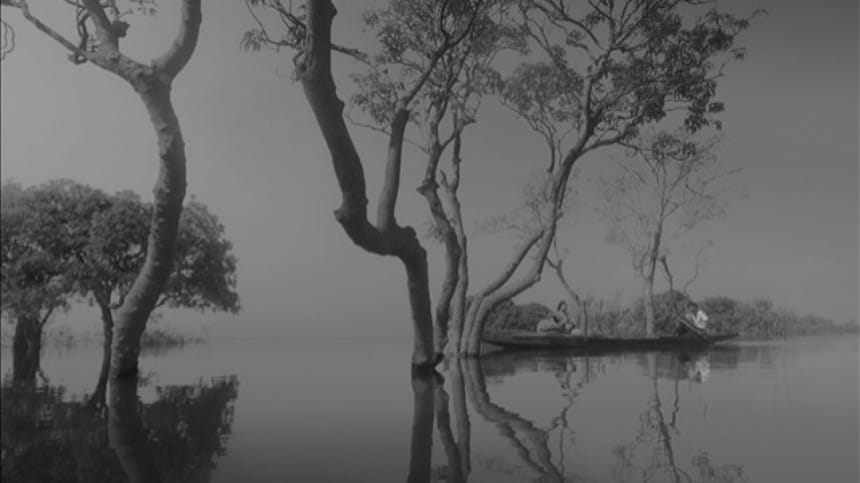
"Nirvana" was born out of an unexpected source of inspiration: a transformer factory owned by one of Asif's family friends. The factory's loud environment posed challenges for audio recording, prompting the decision to make the film entirely silent. What began as a "minimum effort" project soon grew into a powerful narrative that diverges from the norms of the industry.
"Bangladeshi cinema typically relies on vibrant visuals and loud, repetitive music," Asif remarks. "Nirvana" rejects that template, offering something quieter yet infinitely more resonant.
Sound designer Sukanta Majumder and composer Ben Roberts play crucial roles in shaping the film's atmosphere. Though silent, "Nirvana" isn't without sound; it uses ambient noises and minimalistic sound design to enhance its visual narrative.
Asif emphasises that "Nirvana" is open to interpretation, and different viewers will walk away with different understandings of the story. "It's not a film where you interpret the same way twice," he explains. Each character's silent journey through grief, loss, and self-discovery invites the audience to reflect on their own experiences, making it a deeply personal viewing experience.
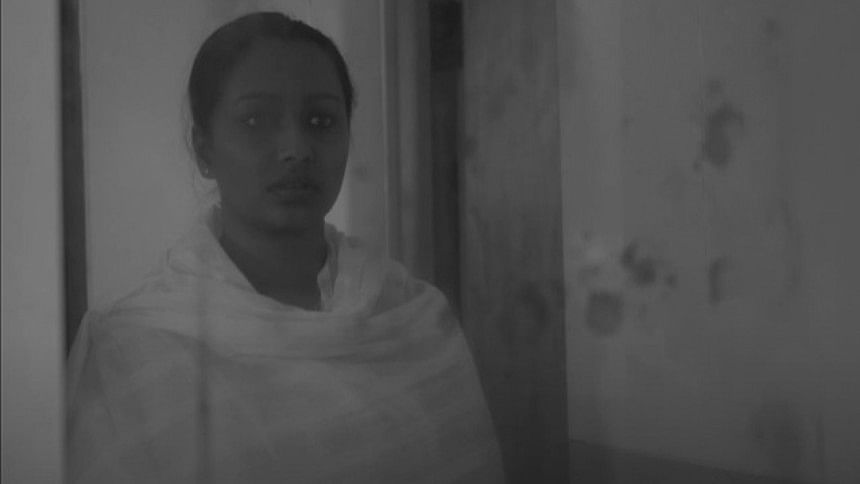
Despite "Nirvana"'s limited budget, which forced the filmmakers to opt for black-and-white cinematography instead of their initial plan for colour, the film's simplicity only adds to its appeal. Asif insists that making a meaningful film doesn't require a large budget or a massive crew. "You can make a film with the most basic and minimal resources; 'Nirvana' is proof."
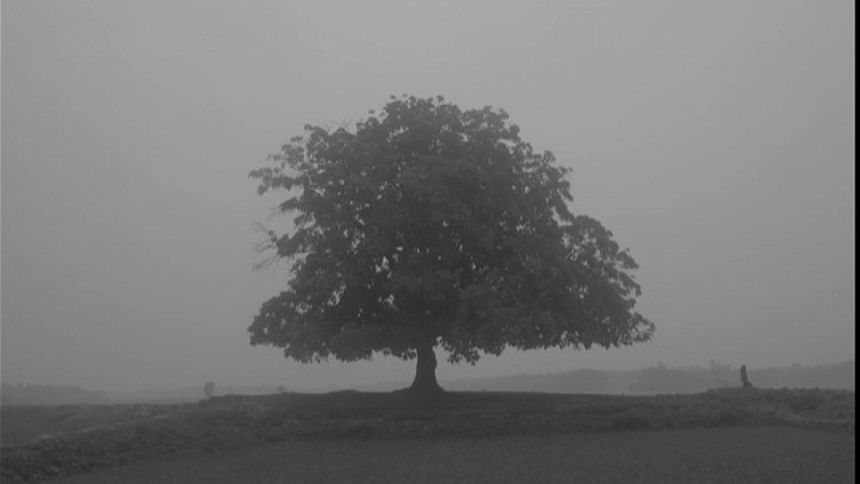
As "Nirvana" gears up for screenings at festivals in Morocco, Spain, London, and India, Asif remains cautious about a commercial release in Bangladesh. He is especially wary of potential censorship issues, given the film's sensitive themes, including its LGBTQ narrative. While Asif hopes for a screening at the Rotterdam Film Festival, he acknowledges the challenges that lie ahead, particularly in getting the film past Bangladesh's censorship board.
Beyond his work on "Nirvana", Asif Islam has a diverse background in audio-visual production, advertising, and graphic design.

 For all latest news, follow The Daily Star's Google News channel.
For all latest news, follow The Daily Star's Google News channel. 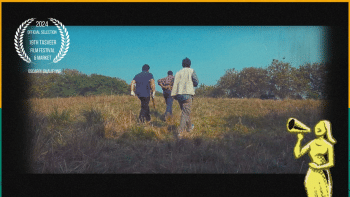









Comments